Appearances can be deceptive. When rugby fans looked at Danny Grewcock; scrum-cap on, a swaggering 6ft 6ins of sinewy muscle and raw aggression – which landed him in the dock more times than the Kray Twins – they envisioned the type of man who would wrestle a bear in the wild and grunt in monosyllabic tones when questioned.
Indeed, now a high performance manager at Clifton College School, and part of the Bristol Bears Academy set-up, you couldn’t blame some parents being a tad wary of the karate black belt, and adamantine former lock, when discussing their gilded progeny. “Parents will have had a view of me as a player, but hopefully when they speak to me, speaking about their kids, they see a different side to me,” he smiles. “I know people see my image and assume that’s how I live my everyday life, so hopefully I surprise them.”
Thankfully for this interviewer, any ill-judged preconceptions quickly dispersed because the 69-cap, two-time British and Irish Lions second-row was charm personified. Thoughtful and considered, he was more than happy to chew the fat about rugby’s various ills but also to stress its importance in the development of young men, and women, putting forward a strident defence to its detractors.
As a proud son of Coventry, ‘Grewy’ has watched with dismay this season as two clubs, Wasps and Worcester Warriors, have disappeared from the Premiership without a parachute, with their very existence threatened. “I was surprised, especially if you look at the Midlands, which is traditionally a strong rugby area. From the outside, I thought the business models for those two stood up. Even though the Wasps move was disruptive, I assumed they’d brokered a good deal when they got the stadium. I thought their off-field business model, with the casino, conference and arena, instead of paying the rent like they did with QPR, worked. Suddenly they were in control.”
As for Worcester, with their location as the gateway to the Midlands and the South-West, Grewcock said, similarly, he was surprised no knight in shining armour rode to the rescue with seconds to spare. “To suddenly find out they were in enough trouble to close them down in what seemed like a matter of weeks was shocking. You have two significant employers, employing hundreds of people, going to the wall, and in a supply and demand market, it’s not the time to be renewing contracts. It is terribly upsetting, and you still hope someone steps in for these clubs and they return to the Premiership as soon as possible.”
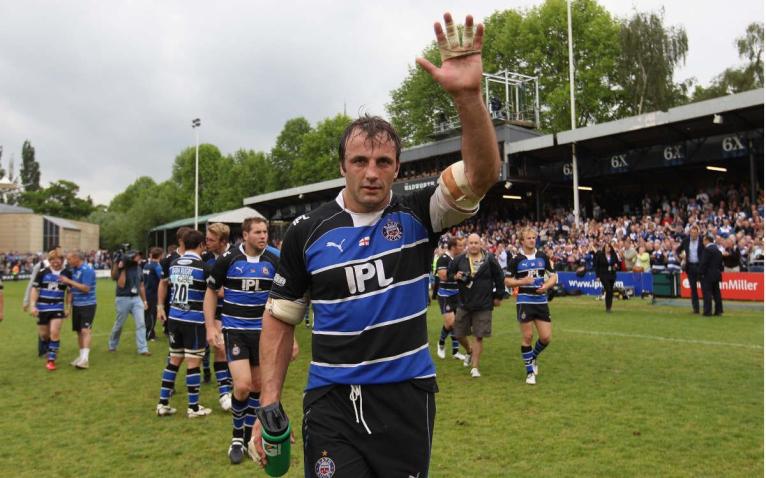
Down in the South-West, and in finer-fettle, Bristol are being held up as a model of progressive, forward-thinking ownership where, despite a disappointing season on the field, off it, there are several examples of best practice. It’s here, alongside his role with Clifton College, one of the best rugby schools in the UK, that he works with Bristol Bears Academy, honing the next generation of professional players. “Gethin Watts is our Academy Manager and he’s brought in quite a lot of new ideas, while Matt Salter is Director or Rugby at Clifton. Matt finds the toughest fixtures because the days of schoolboy rugby and hammering sides 50-0 are long gone. It’s about finding games which are won or lost in the last play of the game, so Millfield and Wellington and Blackrock College are on the fixture list. Of course, there’s a big focus on the academic side, but we see sport as something which is hugely influential in shaping the kids.”
For Grewcock, who came to the sport late, allowing talent to mature in their own time is an area that fires him up.
“In my eyes, the earlier you identify talent, the less accurate that decision is. The Bears are really taking a lead on this at Academy level. Historically, in their last year at school, with the pressure of their A-Levels, young lads play a few Academy games and then a decision is made of, ‘yes you will be a professional player, or no, you will not’. These boys are just 18! Now, with the BUCS Super League, that level of competition has extended that decision to 21 or 22. For me, that’s an accurate decision because the average age of a Premiership player is in their mid-twenties.”
You have to learn how to not think about rugby because the biggest factor to improving and staying in the game is motivation. The more things you have going on in your life the better you can be with your time management.
Grewcock argues that most boys are not going to be ready to play in the Premiership straight out of school, despite outliers like Marcus Smith and the Curry twins. Thankfully, the pathway established by the likes of Alex Dombrandt, Luke Northmore and Tom Pearson is becoming accepted as a bonafide route. “Not many boys are physically, technically or tactically ready at 18, so now good academies are identifying what fits the individual, not ‘this is how we do it, jump on this treadmill’. The Bears have connections with lots of universities – so the programme is pretty fluid. Half the challenge for the boys post-school is moving from and Under 18s set-up to essentially an Under 35 age-group. It’s a significant leap.”
As for the characteristics required to make it to the top, Grewcock often passes on sage, hard-earned advice to his students.
“My message to young players is to have an off switch. You have to learn how to not think about rugby because the biggest factor to improving and staying in the game is motivation. The more things you have going on in your life the better you can be with your time management. Whether it’s accountancy exams, property development, a bricklaying course, whatever it is, having other things going on means you return to rugby good to go.”
Grewcock’s own pathway into rugby is framed by the conventions of the amateur era. Kicking about in Woodland’s School in Coventry, his first love was martial arts but due to his sizeable frame, he played for the school and at 18, was coaxed by mates into joining them at Barkers Butts.
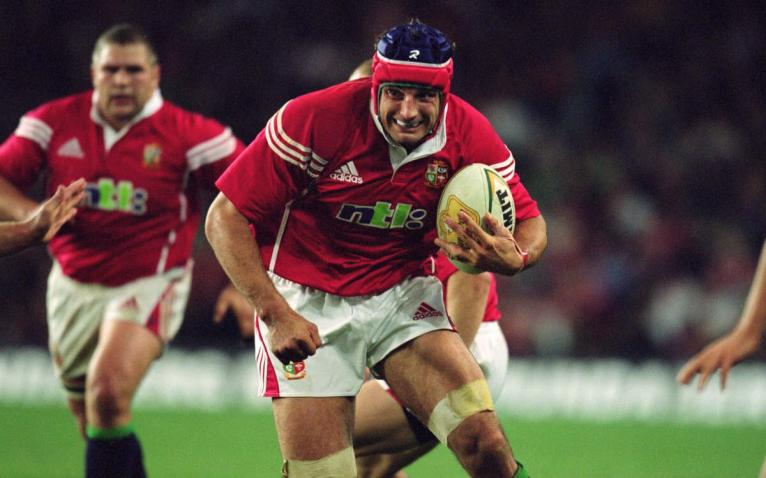
In time honoured fashion, he socialised and played university rugby, where the bug finally took hold. “Quite bizarrely, I finished university in 1995, and watched the World Cup in South Africa, when the game was on the cusp of going professional. It wasn’t an aspiration to be a professional player back then because that route didn’t exist. I was trying to find my career path, but things started to fall into place. I was teed up with a club near Perth, so I finished Uni on the Monday and flew to Australia on the Tuesday. They even sorted me out with a job stacking shelves.”
Hunkered down in Cottesloe, Western Australia, on the tramline between Perth and Fremantle, Grewcock immersed himself in beach life but soon realised shelf-stacking wasn’t his calling. “I was asked to leave, because my shelf stacking skills weren’t really up to scratch but the rugby club gave me a gym membership and I had a plenty of freedom. Frank Bunce, the New Zealand centre’s brother played there, and despite Aussie Rules being the dominant sport, the rugby club was a melting pot of backpackers and the heart of the community. I loved it.”
I do like a little adventure. I’m not as mad as David Barnes who does ultra-marathons and iron mans in the Alps but I’ll keep trucking as long as I can.
Grewcock is contemplative when recalling the stepping stones of a distinguished career, ruing wistfully how quickly it passed. “I used to get to the middle of the field in a stadium and look around, but before you knew it, ‘bang’, the whistle went and you’re chasing the ball around and then the whistle goes for full-time and it’s onto the next and the next, then suddenly, ‘bang’, your career’s done. Sometimes you do need to pinch yourself and think this is incredible.”
Even though he retired at 38, Grewcock’s feats of physical endurance didn’t diminish. There was a trip to the North Pole, canoeing down the Devises, cycling from Land’s End to John O’Groats and there will doubtless be more challenges to come. “I do like a little adventure. The Wooden Spoon charity did a run over Pen y Fan in the Brecon Beacons and back again last year. We had a college team and me and Matt (Salter) did it in 3hrs 40m, which isn’t bad. I’m not as mad as David Barnes who does ultra-marathons and iron mans in the Alps but I’ll keep trucking as long as I can.”
As for where his drive comes from, Grewcock says his parents are owed a debt of gratitude. “A lot of successful people are diligent people who can focus. My mother was a music teacher and my dad a surveyor. They worked hard, and my brother was the same. My passion was for rugby and my starting point was relatively low, so the gains were pretty significant. The karate background gave me core strength as a foundation and I was relatively flexible compared to the other lads. At Uni I got involved in weights programmes so when the game turned professional, I was in decent shape.”
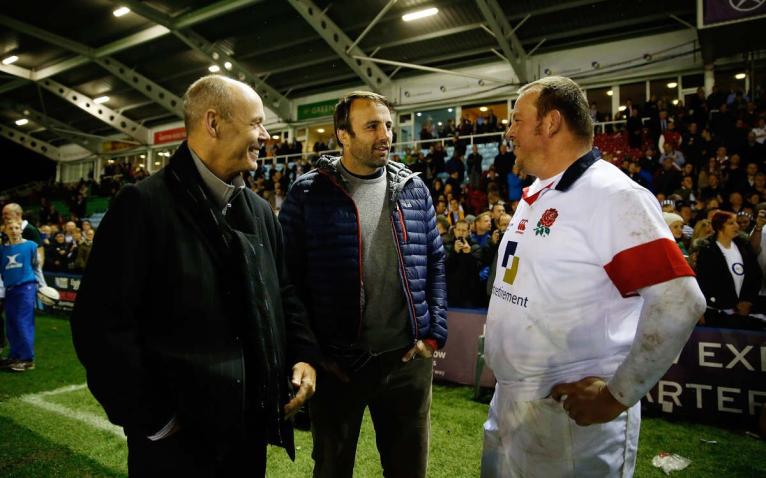
Now 50, having played over 300 professional games, Grewcock says he is, reluctantly, slowing down. “The body is just about holding up. My ankle plays up and my back is a bit sore from jumping in the lineout and hitting rucks. You never quite know if it’s old age or you’ve had a few knocks but I think the brain is okay. It’s very sad what is happening with the concussion side of it. I hope these guys, between them, get a resolution. I certainly don’t think I’ll be lacing my boots up again.”
Harking back to the good old days, Grewcock says he thrived in an international jersey when the pressure was ramped up and remembers the game when England were able to go toe-to-toe with the world’s best. “2000 was a bit of a turning point. We didn’t do amazingly at the 1999 World Cup when De Beer kicked us out of the tournament, but we toured South Africa the following summer for a two Test series. We narrowly lost the first Test 18-13, but in the Second Test, we won 27-22 in Bloemfontein. Even though Lawrence (Dallaglio) and Jason (Leonard) got yellows, we still won through Jonny (Wilkinson) who scored all our points.”
I remember Whitey made his debut out in South Africa but lost his rugby boots before the game. He was a size 10, but problem was the sports shop only had a pair of size 13 boots. He looked like he had clown’s feet but he didn’t care.
The game was also memorable because Julian White, the uncompromising Leicester tighthead, had an issue with his boots. “I remember Whitey made his debut out there but lost his rugby boots before the game. He was a size 10, but problem was the sports shop only had a pair of size 13 boots. He looked like he had clown’s feet but he didn’t care. I remember being unbelievably nervous and fearing for my life but to get the win out there was special. It was a time before citings so it was a bit looser but there were certain things, shall we say, that needed to be done to make sure we weren’t bullied.”
After that tour, Grewcock felt England had the makings of a World Cup winning side. “The boys started thinking, ‘this is doable, we have what it takes’ and Sir Clive’s vision started paying off. I was also on the Australia ‘tour of hell’ in 1998 where we got hammered 76-0, so we came from a long way back but huge credit to Clive. He played Australia, New Zealand twice and South Africa, and left his best players at home. It was painful short term but paid-off in the long term. He blooded the young players who lifted the World Cup.”
While Sir Clive has his detractors in the modern game, Grewcock says the part he played in the embryonic stages of the professional game were marked. “Clive was a leader who radically changed how the game was played and prepared. The more I think about that, the more impressive it is. He moved that England team into the professional era and every professional rugby team has adopted the model he established, with the expert coaches and detail he went into. More than that, he allowed the playing group to lead. Guys like Johnno, Lol, Jase and Catty. All brilliant people.”
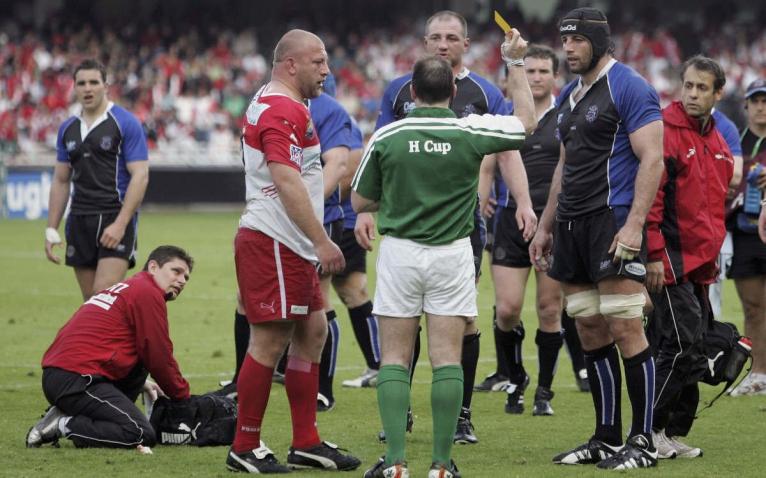
When it comes to domestic coaches he worked under, Grewcock says there was one common theme they shared. “Most of them were crazy but they created packs that worked for each other. I enjoyed working with Michael Foley at Bath, Mark Bakewell, and David Eves at Coventry. They were all tough characters but very passionate. Robbo (Andy Robinson) also sits in that bracket. Those guys brought in a level of detail and passion that helped me see where I could improve, and what I could do. John Mitchell was another one. Slightly mad but in a good way.”
As for the players he faced over the years, it is a tad surprising to hear that one of England’s most revered enforcers, used low-level anxiety to drive him on. “Funnily enough, I had a fear about most people I played against. It spurred me on to do my work and train hard. I could look an opponent’s game, analyse it and say, ‘he’s good at that, he’s good at this, I’ve got to match that. I didn’t kid myself.”
The single player, that quite literally stood above all, was Martin Johnson. “When I look back and think, the one player who never had a bad day was Johnno. I had to be at my very best game to be close to parity. He was unbelievably consistent. He was someone who didn’t waste his words and when he spoke to the team, everyone stopped and listened. If he sent you that way, everyone went that way. Johnno could be very blunt, whereas Lawrence was a different type of leader, more emotive. They’d pick and choose who needed to lead at each moment. I feel, even now, that it was an honour to play against him, and alongside him.”
My retirement came about because I never wanted people to say, ‘bench him, he’s never going to start, he’s just hanging in there’, I would hate that. Hate it. I wanted to be a person the team could rely on.
At the other end of the size equation was a former Bath colleague who took plenty of punishment over the years. “One player I really admired was Nick Abendanon. I saw him coming through at Bath and don’t think he ever got the true recognition he merited with England. I was gutted when he left the Rec, but chuffed he was able to show how good he was in Europe with Clermont. It’s easy if you’re 6ft 6in and 19st and you’re able to run over little people, but week after week he was invariably the smallest. I’ve never seen anyone get up so often after being left in a heap. They’d be red card tackles these days, but you can only play to the rules at the time. He never once complained.”
Despite last lacing up his boots 12 years ago, Grewcock’s no-nonsense on-field persona endures, so is he aware he was regarded as someone who could, how can you put this, handle himself? “It’s just how I played. I recognised my strengths and what I could bring to the game. I was never going to be landing drop-goals, or spiral kicking from 22 to 22. My skillset was about being physical in the contact area. That’s where I excelled. My retirement came about because I never wanted people to say, ‘bench him, he’s never going to start, he’s just hanging in there’, I would hate that. Hate it. I wanted to be a person the team could rely on. Someone of value. The bloke hitting rucks, winning lineout ball, doing work on the physical side of it. I loved the team environment and working together for a common aim. It gave me purpose.”
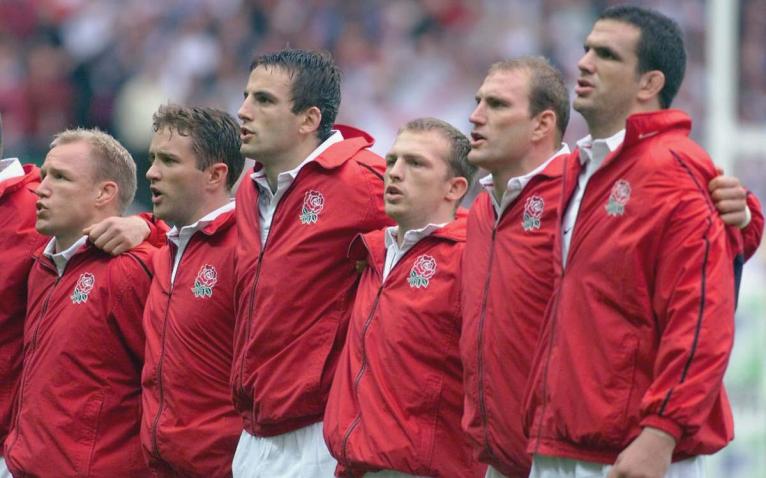
With his chequered disciplinary career, the one person who always had his back, was closer to home. “My mother never told me off for being too rough with the other big boys. She realised my passion and supported it. She didn’t know a thing about rugby, nor did my dad. They just ensured I made it to training. If things went a bit wrong, she saw it differently and was always incredibly positive, no matter how bad it got.”
While he is working for rivals, the Bristol Bears, as a player Grewcock will be forever associated with Bath, after making 226 appearances at The Rec. He has watched his old club’s travails, but senses green shoots of recovery are starting to emerge. “Part of the reason we love sport is the constant search for a winning formula. Finding the equation that fits for this team to allow them to play consistently at their very best is difficult because every week you have someone else searching for the same thing. I was at the Academy and worked with Josh Bayliss, Miles Reed and obviously Zach Mercer. They are good lads I’ve known since they were 16. I know the quality they’re bringing in with Ted Hill, Ollie Lawrence, Alfie Barbeary and obviously Finn Russell for next year. There’s no doubt under Johan van Graan, they’re on an upward curve.”
It’s going to be a boring old place if we stop kids doing stuff. We have to marry up the risk and reward of pushing boundaries. I’m all for making the game safer, but we can’t lose sight of the brilliant experiences the game gives us.
With the interview drawing to a close, Grewcock says he does worry that rugby is its own worst critic and that a balance has to be found, because the game has much to savour. “My worry right now is there’s so much bad news. The issues with concussion, clubs going to the wall. There’s a danger we’re sanitising the world and there are downsides. My wife can be a bit cautious at times, but I say, ‘if you stop kids climbing trees, they will never fall out of trees and learn – it’s going to be a boring old place if we stop kids doing stuff. We have to marry up the risk and reward of pushing boundaries. I’m all for making the game safer, but we can’t lose sight of all the brilliant experiences the game gives us.”
Passionate to his core, Grewcock’s voice is one rugby should heed and nurture. The fire still burns within, and that is reason for celebration.



Comments
Join free and tell us what you really think!
Sign up for free